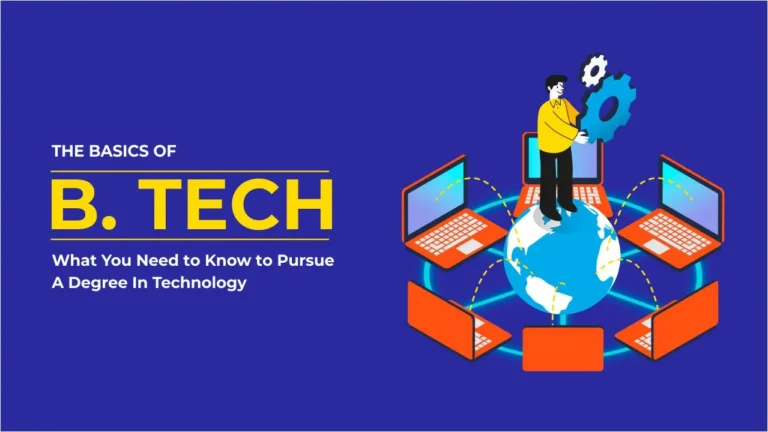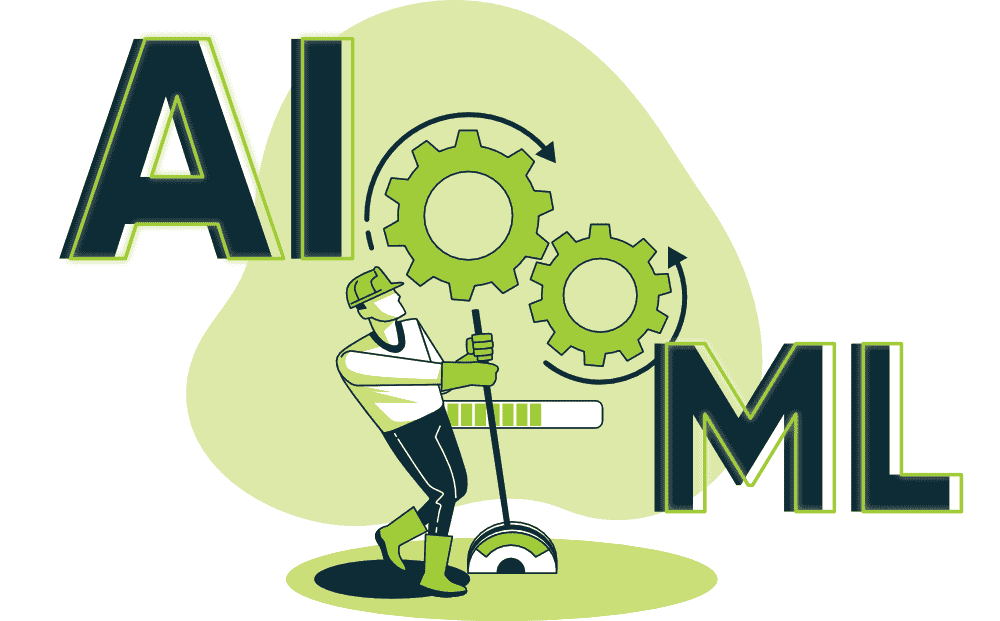B.Tech, short for Bachelor of Technology, is one of the most sought-after degrees in India and across the globe. It offers a plethora of opportunities for students to dive into the world of technology and engineering. This article will explore the scope of B.Tech, including its benefits, career options, and future prospects.
Understanding Scope of B.Tech
What is B.Tech?
B.Tech is an undergraduate degree focused on engineering and technology. It equips students with theoretical knowledge and practical skills to tackle real-world problems.
Duration and Structure of the Program
Typically, a B.Tech program lasts four years, divided into eight semesters. The curriculum includes core subjects, electives, lab work, and project-based learning.
Specializations in B.Tech
There are numerous specializations in B.Tech, allowing students to focus on their areas of interest. These specializations include, but are not limited to, Computer Science, Electrical Engineering, Mechanical Engineering, Civil Engineering, and Information Technology.


Advantages of Pursuing B.Tech
High Demand in the Job Market
B.Tech graduates are highly sought after in various industries due to their technical expertise and problem-solving abilities.
Versatility of Career Options
A B.Tech degree opens doors to multiple career paths, from engineering roles to management positions and even entrepreneurship.
Opportunities for Innovation and Research
B.Tech graduates often engage in cutting-edge research and development, contributing to technological advancements and innovative solutions.
Popular B.Tech Specializations
Computer Science and Engineering
This specialization focuses on software development, algorithms, and computer systems. It is ideal for those interested in programming and technology.
Electrical and Electronics Engineering
Students learn about electrical circuits, power systems, and electronic devices, preparing them for careers in industries like telecommunications and energy.
Mechanical Engineering
This field covers the design, analysis, and manufacturing of mechanical systems. It is suitable for those fascinated by machines and industrial processes.
Civil Engineering
Civil Engineering deals with the planning, construction, and maintenance of infrastructure projects like roads, bridges, and buildings.
Information Technology
IT specialization emphasizes computer systems, software, and network administration, catering to the growing demand for IT professionals.
Emerging B.Tech Fields
Artificial Intelligence and Machine Learning
AI and ML are revolutionizing industries by enabling machines to learn and make decisions. This field offers exciting research and career opportunities.
Data Science
Data Science involves analyzing large datasets to extract valuable insights. It is a crucial field in today’s data-driven world.
Cybersecurity
With the rise in cyber threats, cybersecurity professionals are in high demand to protect digital information and infrastructure.
Environmental Engineering
This field focuses on developing sustainable solutions to environmental problems, making it ideal for those passionate about environmental conservation.
Biotechnology
Biotechnology combines biology and technology to create innovations in healthcare, agriculture, and other sectors.
Career Opportunities after B.Tech
Private Sector Jobs
B.Tech graduates can find employment in various industries, including IT, manufacturing, automotive, and telecommunications.
Public Sector Jobs
Government organizations and public sector units (PSUs) offer lucrative job opportunities for B.Tech graduates in sectors like energy, defense, and infrastructure.
Startups and Entrepreneurship
With a solid technical foundation, B.Tech graduates can launch their own startups or join innovative tech ventures.
Higher Studies and Research
Many B.Tech graduates pursue higher studies like M.Tech, MBA, or PhD to deepen their knowledge and enhance their career prospects.
Top Companies Hiring B.Tech Graduates
- IT Companies: TCS, Infosys, Wipro, HCL
- Core Engineering Companies: Larsen & Toubro, Tata Motors, Reliance Industries
- Consulting Firms: Deloitte, Accenture, PwC
- Government Organizations: BHEL, ONGC, ISRO
Higher Education Options Post B.Tech
M.Tech
A Master of Technology degree allows students to specialize further in their chosen field and engage in research.
MBA
An MBA provides managerial skills and business acumen, opening up leadership roles in various industries.
MS/PhD
Pursuing an MS or PhD abroad or in India can lead to advanced research opportunities and academic careers.
Professional Certifications
Certifications in areas like project management, data analytics, and cybersecurity can boost career prospects.
Skills Developed During B.Tech
Technical Skills
B.Tech students acquire in-depth technical knowledge and hands-on experience with industry-standard tools and technologies.
Analytical Skills
The rigorous coursework helps develop strong analytical and critical thinking abilities.
Problem-Solving Skills
Engineering education emphasizes problem-solving, preparing students to tackle complex challenges.
Communication and Teamwork
Collaborative projects and presentations enhance communication and teamwork skills.
Global Opportunities for B.Tech Graduates
Working Abroad
B.Tech graduates have the opportunity to work in global tech hubs and multinational companies.
International Collaborations
Participating in international projects and research collaborations can broaden career horizons.
Higher Studies in Foreign Universities
Many graduates opt for higher studies in prestigious universities worldwide, gaining global exposure and advanced knowledge.
Tips for B.Tech Students
Effective Study Habits
Develop a routine, stay organized, and use active learning techniques to retain information better.
Time Management
Prioritize tasks, set realistic goals, and avoid procrastination to manage time effectively.
Networking and Internships
Build a professional network and gain practical experience through internships and industry projects.
Keeping Up with Industry Trends
Stay updated with the latest developments in technology and engineering through journals, seminars, and online courses.
The Future of B.Tech Graduates
Technological Advancements
Rapid technological advancements will continue to create new opportunities for B.Tech graduates.
Evolving Job Roles
Job roles are evolving with technology, leading to new and exciting career paths.
Lifelong Learning
Continuous learning and skill development will be essential to stay relevant in the ever-changing tech landscape.
FAQs
What is the average salary of a B.Tech graduate?
The average salary of a B.Tech graduate varies depending on the specialization, industry, and job role. Generally, it ranges from INR 3.5 lakhs to 12 lakhs per annum for freshers.
Is B.Tech only for science students?
While B.Tech is primarily for students with a science background (PCM – Physics, Chemistry, Mathematics), some institutions may offer lateral entry for diploma holders in engineering.
Can B.Tech graduates switch to non-technical fields?
Yes, B.Tech graduates can switch to non-technical fields by pursuing relevant courses or certifications in areas like management, finance, or marketing.
How to choose the right B.Tech specialization?
Consider your interests, strengths, and career goals when choosing a B.Tech specialization. Research the scope and opportunities in each field to make an informed decision.
What are the key differences between B.Tech and B.E.?
B.Tech (Bachelor of Technology) focuses more on practical and skill-oriented training, while B.E. (Bachelor of Engineering) has a more theoretical approach. Both degrees are valued, and the differences are often institution-specific.














